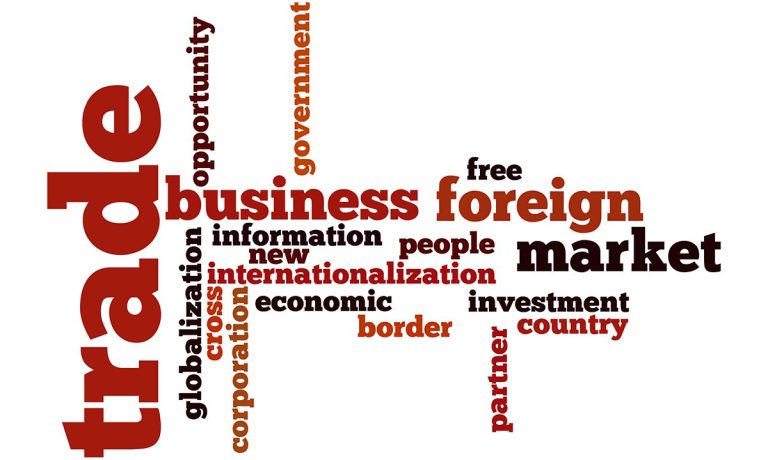B2B Marketplace VertoFX: From Currency Convertibility to Cross-Border Payments in Emerging Markets

In the two years since the B2B payments platform VertoFX launched, a lot has changed.
The big problem Ola Oyetayo and his co-founder, Anthony Oduwole, were trying to solve back in 2019 was the challenge businesses in Nigeria were facing with converting the local naira currency to a foreign one, while minimizing FX volatility, reducing settlement times and processing safe, secure transactions using a best-in-class global infrastructure.
They started solving for that by creating a currency exchange marketplace to help with liquidity – a direct peer-to-peer marketplace for businesses that want to exchange their illiquid currency for a liquid one.
But they soon realized that aside from currency convertibility, cross-border payments were a much bigger issue for businesses looking to pay foreign suppliers in places like China, the U.S. or the EU. “If I’m a business in Johannesburg, Nairobi or Lagos, I want to be placed on the same level playing field as a business in Birmingham or New York,” Oyetayo told PYMNTS in an interview.
Moreover, operating in a global village should ensure that businesses in emerging markets have access to the best technology to make payments anywhere in the world with a few clicks of a button, the same way a business in Birmingham or New York can, he added.
That led to the creation of a payment site that enables businesses to pay suppliers internationally regardless of where they’re located. “Essentially, it’s evolving from just a currency exchange marketplace to an all-in-one, cross-border payment solution for businesses both in developed markets and, most especially, in emerging markets, with a focus on Africa,” Oyetayo said.
Today, the London- and Nigeria-based company, which is also a U.K.-regulated electronic money institution, facilitates payments for banks and businesses across multiple foreign currencies, having onboarded about 2,000 businesses from roughly 25 countries worldwide. The average transaction value on the platform is about $20,000 to $30,000, and its clients range from large enterprises to SMBs.
Pandemic Headwinds and Tailwinds
Oyetayo said the pandemic was a “huge tailwind” for the company, as it became one of the beneficiaries of the digital shift in cross-border payments. He cited an example of a Nigeria-based client and owner of a logistics company who had to be transferred abroad for treatment at the height of COVID.
“She was able to convert our local currency [naira] to a foreign one and pay the air ambulance service in Switzerland,” he said. “The payment was made through us in Swiss francs, and they received it the same day they were able to evacuate the individual,” he explained, adding that COVID has accelerated these use cases, which would not have been possible without the service Verto provides.
But accompanying that digital shift in payments is a surge in digital fraud, with merchants across the globe expected to lose more than $20 billion to fraud in 2021 alone, according to a recent PYMNTS study.
Read more: No Phishing: Multilayered Defense Best Way to Keep Fraudsters Empty-Handed
Digital fraud “is a pandemic in itself,” Oyetayo remarked, and to protect its users, Verto has had to step up its game to reduce the incidence of bad actors using the platform, ensuring first that the know your customer (KYC) and anti-money laundering (AML) checks are localized when onboarding businesses.
“For us, compliance and regulation are big deals, and being able to do that locally also means that we are able to have a stricter way of verifying the business customers that we have,” he pointed out.
The startup also has a dedicated team that monitors transactions using machine learning and artificial intelligence (AI), in addition to the fraud data access they have on individuals and companies through industry groups.
Stablecoins and CBDCs, in Lieu of Cryptocurrencies
In 2019, when his co-founder Oduwole spoke to PYMNTS, the startup had just raised $2.1 million in a seed round to roll out the online marketplace, obtain a regulatory license and build a team. Oyetayo said they were able to hit all of those milestones going into 2020, even before the crisis further catapulted the business to new heights.
Read more: The B2B Marketplace Fix for FX in Emerging Markets
Related news: B2B Payments Platform Verto Raises $10M
And last month, the B2B payments platform took it up a notch, securing $10 million in Series A funding to help expand the 39 currencies it currently has on its platform to 48 before the end of 2021 and to 51 by early next year, Oyetayo said.
The firm also plans to launch an API, which will allow larger enterprises to connect with AI infrastructure and rails using Verto’s technology, while launching other products such as payment links, virtual cards and physical cards for its business customers.
When asked whether Verto will one day accept cryptocurrencies on the platform, Oyetayo acknowledged the change that virtual currencies can make in markets like Africa, where payments are very fragmented, but noted that “we still don’t have, in my view, a strong use case for the transactional utility of crypto.” That, and the absence of regulation in that market, is what makes it, for him, a “love-hate relationship with crypto.”
Oyetayo feels differently about stablecoins and central bank digital currencies (CBDCs), however. He remarked that they will be “big fans” and “probably one of the first adopters” of Nigeria’s e-naira digital currency when it is eventually launched, given that it will be regulated and central bank-backed.
The overall goal is to help businesses, regardless of where they’re located, to move and send money effortlessly and seamlessly, “and if central bank digital currencies can help with that, then we’re up for it,” he said. “What matters to us is what we can do to help our businesses thrive and survive.”